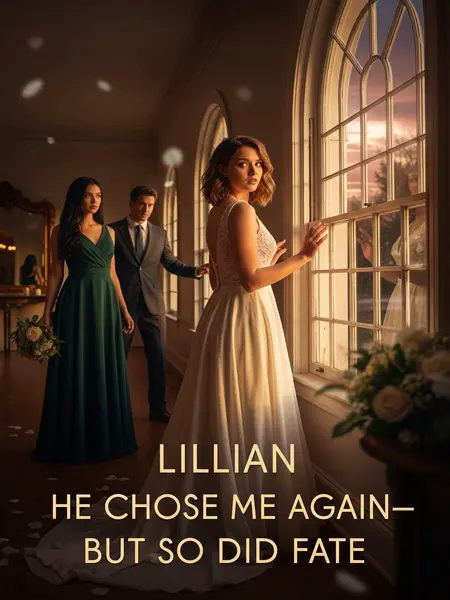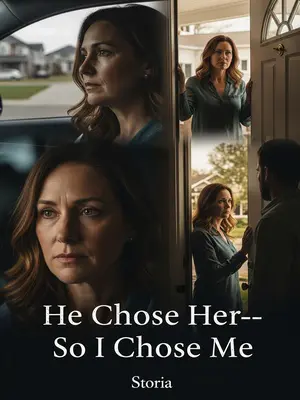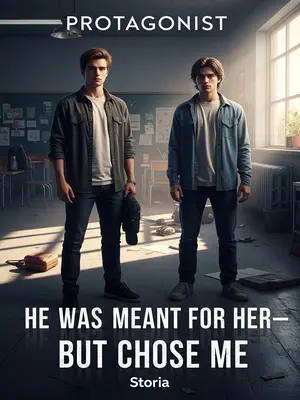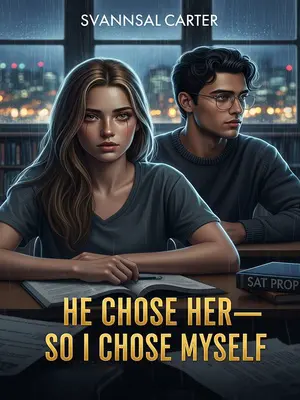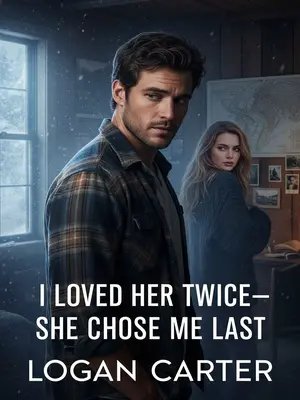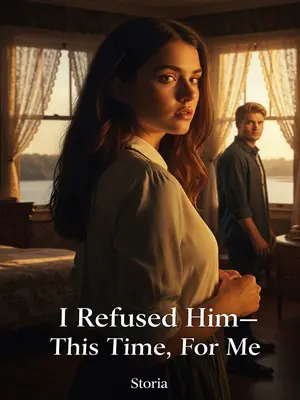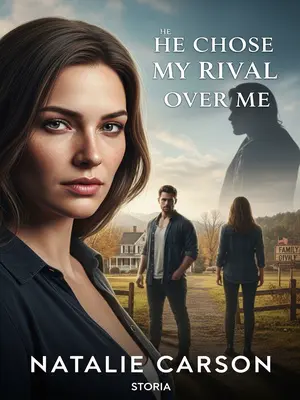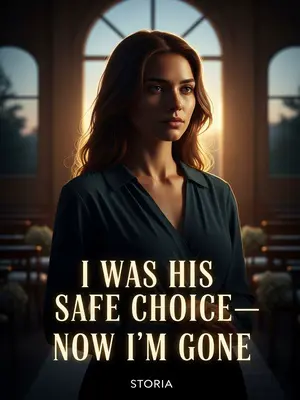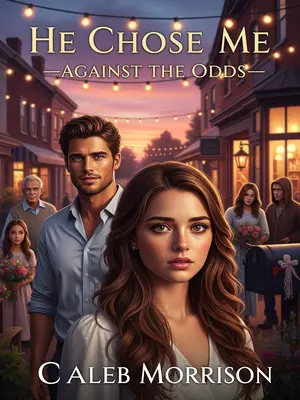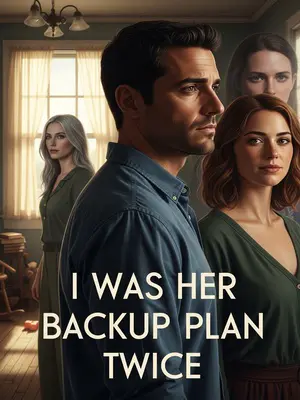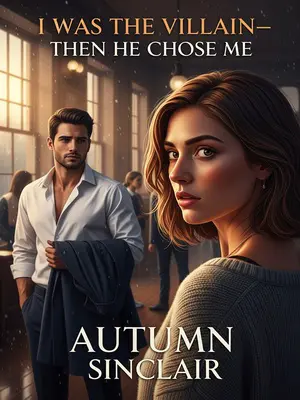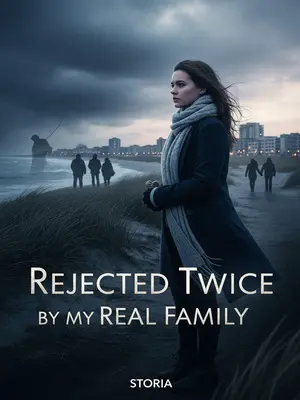Chapter 1: Rewinding Fate, Tying Knots
My husband, Carter Whitlock, isn’t just some ordinary man—he’s the kind of person everyone else sees as the main character, the center of the story. But me? I’m only one of his two leading ladies. Sometimes I wonder if I was always meant to be just a chapter in his epic, or if I could ever rewrite my own fate. The thought slips in, sharp and quick, before I can stop it.
Even after his funeral, people online wouldn’t let it go. The debates just kept rolling—hashtags popping up, endless threads unraveling, everyone picking apart old photos, every lingering look in the background. It felt like the whole internet had turned into a detective agency, determined to unlock the secret of Carter Whitlock’s heart. I’d scroll through it all, a strange ache in my chest, wondering if anyone would ever really know.
I’m his first wife. The one who took a bullet for him back in high school and died because of it. My love for him was fierce—untamed, wild, reckless. I wore my heart on my sleeve and paid the price. Sometimes, I still feel the echo of that day, sharp and bright as broken glass.
Savannah, his lifelong confidante, was different. She bore his children. Their love was gentle and steady. It lasted into old age—a love deep and unwavering, the kind that could weather any storm. I used to envy that, even when I told myself I didn’t.
With no other way out, fate—or maybe something stranger, something out of a sci-fi movie—sent Carter back in time to test his true love all over again. Like some cosmic do-over, the universe decided to hit rewind, and Carter got a second shot at everything. I guess even fate wanted to see who he’d choose.
When he chose me again, without even hesitating, the comment section didn’t just explode—it went nuclear. “See? First love is always first love! Carter’s heart belongs to Lillian!” The posts were everywhere, memes and hot takes flying, and for a second, I almost believed them.
But not everyone was rooting for me. Some people tried to warn me: “Girl, that wedding invite? It’s a setup—don’t walk into it!”
I hesitated, heart pounding, but I took the vows and walked down the aisle again. My hands shook, but I told myself this time would be different.
Because taking that bullet hurt too much. In this life—
I want to live differently. Just once, I choose myself.
We picked a date everyone called lucky, filed it with the county clerk, and within a month all the wedding celebrations were over. The cake, the flowers, the photos—done.
Everything was just as I remembered. The scent of the flowers, the creak of the church pews, the nervous flutter in my stomach—every detail hit me like déjà vu. I swallowed hard, the past and present blurring together.
Wearing an old dress, I walked those familiar streets, surrounded by old friends. Each step felt both comforting and strange—a new marriage wrapped in memories that wouldn’t let go. My thoughts kept circling: Was I really getting a second chance, or just repeating the same story?
But this time, as the officiant left the bridal suite, a cold prickle ran up my spine. Something felt off—like the air itself shifted, thick with a tension I couldn’t name.
The box holding the unity candle—the one meant for Carter and me—suddenly toppled to the floor. Wax splattered, the flame snuffed out before it even started. My heart skipped a beat.
The red ribbon tying our hands together slipped loose, unraveling and scattering across the carpet. I watched it tumble, my breath catching. It felt like a bad omen, even if nobody said it out loud.
For a moment, you could hear a pin drop in the hall. Every breath was sucked in and held. The air felt thick, heavy—like the whole world was holding its breath, waiting for someone to move, to speak, to break the spell. My heart hammered in my chest, louder than the silence.
The officiant and bridesmaids froze, faces drained of color. Panic flickered in their eyes, their hands hovered, uncertain—caught between wanting to help and being afraid to make it worse. I could feel their nerves buzzing in the room.
Mrs. Chambers, who’d raised me like her own, stepped forward and snapped, “Can’t even handle a simple ceremony? Who let you officiate, anyway?” Her voice sliced through the tension, sharp and biting. It was the kind of tone that made even grown men stand up straighter and wish they could disappear.
Carter, gripping my hand, suddenly tensed—his fingers tightened, knuckles white. I followed his gaze—
The figure with her back to us was slim, her shoulders shaking, hands gripping the box like it was the only thing keeping her afloat. She looked so small, so fragile, caught in the glare of a hundred eyes.
She scrambled to gather the ribbon, her fingers fumbling, cheeks burning with embarrassment. I could feel her humiliation like a heatwave, prickling against my own skin. The urge to look away was strong, but I couldn’t.
“That’s enough!”
A beat of silence. Then Carter’s eyes went dark. He stepped forward, took the red ribbon, and tied it again and again, his movements deliberate—almost defiant.
He shot Mrs. Chambers a hard look. “It’s a small thing. You’ve watched over Lillian her whole life, but that doesn’t give you a free pass.” His voice was low, but there was steel underneath—a warning that needed no explanation.
“Bruh, why’s Savannah the officiant? Watching your own husband marry someone else? That’s rough.”
“Both leading ladies in the same room? Is this a rerun or what?”
“I swear, Savannah’s gotta be in on this time travel thing too. No way she’d beg the family to let her officiate otherwise.”
So, Savannah really had been sent back too. The realization hit me like a punch in the gut.
No wonder Carter kept looking out for her, always hovering close.
It took me a long time to figure out what those outside voices really meant. Sometimes I’d read the comments, half-believing, half in denial.
Carter and I are characters in a storybook. Sometimes it felt like someone else was holding the pen, and I was just along for the ride. I wondered if I’d ever get to write my own ending.
He’s the hero, but I’m just one of his two heroines.
Savannah and I are, to them, the red and white roses—two sides of a love story, always in contrast. I remembered reading about that once: the red rose for passion, the white for loyalty and peace. Maybe we were always destined to be rivals, even in the eyes of strangers.
One of us burned bright, the other softened the years. I could see it so clearly—my love was fire, hers was the gentle rain that followed.
Carter and I grew up together, childhood sweethearts from the start. Our lives intertwined like roots under the same old maple tree.
We’d been married for two years, as close as any small-town couple could be. Our days were ordinary, our love the kind that felt like home.
But at the Fourth of July barbecue, everything changed. An assassin’s bullet found me, and my life ended in a single, shocking moment.
The shooter had planned it all, the bullet laced with poison. I never stood a chance, and neither did Carter’s heart.
Not even the best doctors, not even the rarest treatments, could save me. The town whispered, but nobody could fix what had been broken.
It nearly cost Carter his life too. Grief nearly swallowed him whole.
Losing his wife so suddenly, Carter was shattered—lost, teetering on the edge of something dark and bottomless.
At that time, my soul lingered. I watched him keep vigil by my casket, night and day, refusing to leave my side. His stubbornness made me ache, even in death.
He wouldn’t eat or drink. Wouldn’t let anyone near. Any family or friends who tried to talk about the burial were chased off—his eyes wild, shotgun in hand. Even the bravest neighbors kept their distance, whispering that he’d lost his mind. The house felt colder and quieter with each passing day, lights burning through the night like a beacon for the lost.
Grandma Rose, desperate and out of options, waited until Carter was weak and distracted, then called in the pastor and the sheriff to hold him back. It took three grown men to drag him away, his grief so raw it felt contagious.
When my casket was lifted, Carter screamed and fought, thrashing against the hands that held him. His eyes never left the casket, following it with a look that could break stone. When it disappeared through the church doors, a single tear slipped down his cheek and hit the old wooden floor. The sound was soft, almost nothing, but to me it echoed like thunder—final, inescapable.
Gradually, the pain and despair on his face faded into confusion and helplessness. The fight left him, replaced by a numb emptiness.
In the end, he collapsed, fainting under the weight of the men who held him down. The room was silent except for the sound of his breathing.
When he woke again, Carter threw himself into work. It was all he had left.
He built a lookout tower at the edge of town, just so he could see my grave from afar. Every plank, every nail, was a piece of his grief hammered into the wood. People said you could see the whole valley from up there, but I knew Carter only ever looked at my resting place.
He remembered our promise—on New Year’s Eve, he’d take a bottle of wine and climb the tower alone, sending his wishes to me as fireworks burst across the sky, their colors painting the night with memories of what we’d lost.
My soul lingered, watching him. My heart ached for him, but inside, there was a hollow place nothing could fill. It was like standing in the center of a room that used to be full of laughter and now only echoed with silence.
I hurt for him. I watched him fight off the pressure from his family and the whole town, refusing to remarry or even date again—for my sake, or maybe for his own stubborn pride. Every day, I wished I could reach out and tell him to let go, but I was just a ghost in the corner.
But I was also disappointed—he wasn’t just my husband, he was the mayor of Maple Heights. That thought stung, sharp and cold. For a second, I wanted to scream at him: Wasn’t I enough?
He had to have an heir—at least, that’s what his family drilled into him. It wasn’t just about love—it was about legacy, about keeping the name alive.
On the sixth New Year’s Eve after I died, I waited for him at the lookout tower before midnight. The wind was cold, and the stars felt too far away.
When he arrived, I started talking about the little things I’d seen that day, trying to fill the silence with memories. “Carter, look, that little kid’s cotton candy got snatched by his older brother!” I said, forcing a laugh. “There’s a new bakery down by Main Street, the apple pies look amazing…”
He always smiled gently, but when he looked at me, his eyes were heavy—three parts sadness, seven parts longing. Finally, his voice shook as he said, “Lilly—
I’m going to start seeing someone.”
I froze, the words hanging between us. Then I waved my hand, trying to sound breezy: “It’s fine! I’m your wife; I can be generous. I won’t get upset!” My voice cracked at the end, and I hoped he didn’t notice.
On the day Savannah became his partner, Carter’s face was like stone. He looked Grandma Rose dead in the eye and said, “I’ll never remarry.” His voice was flat, but I could see the pain underneath.
The moon was full that night. I sat on the roof of the old house, knees pulled to my chest, mumbling little prayers like the ones I’d read in storybooks as a kid, hoping the angels would come and take me away. The stars didn’t answer.
They must have been too busy, I thought, letting me wander the world, half here, half gone. I wondered if they even noticed me at all.
Hugging my knees, I whispered to myself: “It’s fine, spirits don’t cry, and they don’t feel pain.” The words sounded empty, echoing in the night. I kept repeating them anyway, hoping they’d feel true if I said them enough.
But it hurt so much—worse than the day I took that bullet. The pain was sharp, deep, like a wound that wouldn’t heal.
I was so sad, it felt like I was dying all over again. The ache never faded, only settled deeper in my bones.
After that, I drifted through the world for thirty years. Time stretched and warped, days bleeding into years, years into decades.
Time really is a terrifying thing. It eats everything, even the sharpest memories.
I went from being Carter’s one and only to someone he smiled at while watching his kids play. Sometimes he’d pause, remembering me with a trace of longing, but mostly, life moved on without me.
I watched him go from Lillian’s husband, to Savannah’s, to little Charlie’s father. Each role fit him differently, each one a little further from the boy I’d loved.
Compared to thirty years, two years was just a drop in the bucket.
Carter was still simmering, frustration etched into his brow. “Lilly, I never thought Mrs. Chambers could be so harsh. Why’s she gotta make everything so hard today?” His words hung in the air, heavy and unresolved.
The comments online started up again, snarkier than ever: “Of course she’s acting up—she cares! I’ve always said, thirty years of marriage can’t touch two years with Lillian.”
“Ever heard the saying? Love follows the money. Carter’s future belongs to our Charlie, Grandma Rose’s legacy is for Savannah, and some folks have nothing at all—how dare they brag about true love!”
In my last life, I was married to Carter for two years and never got pregnant. The emptiness in our house was a quiet ache I could never quite name.
But Savannah moved in, and within three months, she was expecting Charlie. The news spread fast, and the look on Carter’s face was something I’ll never forget.
Thinking of that stubborn woman today, I realized that in this life, rivalry was inevitable. It wasn’t just about Carter anymore—it was about everything we’d both lost and fought for.
No one, after struggling so hard to get everything, would just hand it over to someone else.
